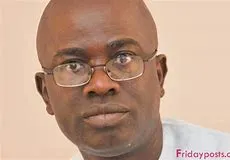Addressing newly appointed judges in Wollongong, Australia at their national orientation on 13th October 1996, the then Chief Justice of Australia, Sir Gerard Bennan spoke about what was expected of the men and women who were being elevated to the bench. “A trial – including a criminal trial – is not the occasion for diminishing the dignity of any person in the courtroom. It is an occasion for the dispassionate finding of facts and application of law,” Bennan told the gathering. “At the end of the trial – even a trial in which an accused has been convicted and sentenced – the participants in the trial should be able to leave the courtroom with their dignity unaffronted.”
That speech by Bennan, ‘The Role of a Judge’, is reproduced in the United Nations Office of Drugs and Crime (UNODC) publication, ‘Judicial Ethics Training Manual for the Nigerian Judiciary’. Foreword to the document was written by Justice Timothy Oyeyipo who served as Chief Judge of Kwara State for 21 years (from 1984 to 2005) before his appointment as administrator for the National Judicial Institute where the training manual was prepared. Although most of our Judges have gone through the training sessions, it is obvious that not all have imbibed the lessons. Nor have they acquainted themselves with Rule 5 of the ‘Revised code of conduct for Judicial Officers of the Federal Republic of Nigeria’. The National Judicial Council (NJC) Rule provides that whereas a Judge, like any other citizen, is entitled to freedom of expression; “but in exercising such rights, a Judge shall always conduct himself in such manner as to preserve the dignity of the judicial office and the impartiality and independence of the judiciary.”
The foregoing is important against the background that democracy in Nigeria is now anchored on “what can be regarded as an electoral college”, according to a former All Progressives Congress (APC) national vice chairman, Salihu Lukman. As he put it, citizens can vote but winners are decided in the courtroom by conclaves of Judges. Yet, as I once wrote on this page, we cannot continue with a situation in which neither those who cast ballots nor those who count them matter due to the antics of politicians who have perfected the art of using courts to shortchange the peoples will.
It is because Judges now determine who wins elections in our country that has encouraged all manner of electoral petitions from politicians, including those who may not have participated in the process beyond filing papers. But it would be unfair to blame our Judges for the aberration, since they only deal with cases brought before them, though there are ways in which they are increasingly becoming the problem. Last week, the Kano State election petition tribunal nullified the election of Governor Abba Kabir Yusuf of the New Nigeria Peoples Party (NNPP) and declared Nasir Yusuf Gawuna of the APC as the rightful winner. However, in his consenting judgment, Justice Benson Anya sent a curious message to “bandits in politics who want to take power by force.”
As the Yoruba would say, ‘Olopa e wo ni tie pe?’. I have expressed my inability to properly translate Yoruba into English but here is the point: The duty of a police officer is to arrest but when he tells the accused, ‘You will not get out of this’, then that is beyond the call of duty. That is precisely the problem with the Kano State gubernatorial petition judgement. The (in)famous line: “I use this opportunity to condemn the gang of Red Cap wearers who like a violent and terrorist cult chased us out of Kano and put us in the fear of our lives. We believe that only Allah is the giver of power. Those who believe in Allah must bow to his will and submit to the authority of Governmental power. Resort to anarchy, violence and killing can never be a source of lawful power. Threatening to put Honourable Judges in danger of their life as done in Kano by some disgruntled bandits parading as politicians is hereby condemned.”
I am aware of the background to the tribunal ruling in Kano, especially the threat of violence if the verdict did not go a certain way. But where others would ‘set up a probe panel’ to investigate the trending video, the governor acted with dispatch by sacking his errant commissioner. He also affirmed his belief in democracy and the rule of law. So, there was no justification for name-calling or stigmatizing people who were not in court. Besides, if power comes only from the Divine, as we are often told in our very religious country and the Judge has affirmed, why do we bother to vote? And then, we have another line in the judgment that reeks of pre-determined bias: “Instead of some Kano politicians to be allowed to use banditry and violence to abort democracy in Kano State, justice will be used to stop them from destroying democracy in Kano and upward, we do not want anarchy and terrorism as being promoted in Kano State and as threatened by them.”
The concern being expressed by many Nigerians is that the latest case in Kano is becoming a pattern. In January this year, the Chairman of the Osun State Governorship Election Petition Tribunal, Terste Kume, mocked Governor Ademola Adeleke of the Peoples Democratic Party (PDP) while delivering the majority judgement which declared the then incumbent Adegboyega Oyetola of the APC as the rightful winner of the gubernatorial election held last year. Adeleke, according to the Tribunal Chairman, “cannot ‘go lo lo lo lo’ and ‘Buga won’ as the duly elected Governor of Osun State in the election conducted on 16h day of July 2022. See Kizz Daniel’s song BUGA.” Aside from the inelegance of a Judge going so lo(w) in a crucial judgment, the bias was evident. It is noteworthy, of course, that the Court of Appeal would later quash the judgment and the Supreme Court subsequently affirmed that Adeleke was indeed validly elected.
Meanwhile, let me express my sympathy with our Judges. The President of the Court of Appeal, Justice Monica Dongban-Mensen, said on Monday that as of 31st August, the appellate court has 39,526 pending cases. With 98 panels constituted to hear a total of 1,209 election petition cases across the country, it is obvious that the Judges are being overworked in a nation where politicians don’t lose election (they either ‘win’ or are ‘rigged out’). According to Dongban-Mensem, “the entire Nigerian judicial system is inundated with electoral litigation and adjudication almost all year round,” noting that of the 28 states where governorship elections held this year, only Kwara, Niger, Yobe, and Katsina did not result in litigation. “It is a matter of concern that many judges of the trial court have been engaged for six months in the exclusive management of electoral cases.” On top of that, we still saddle our Supreme Court with ‘Isi Ewu’ (pepper soup) cases such as“an incident of arson where 12 goats were set ablaze,” according to Justice Amina Augie at a valedictory session held in her honour, following her retirement last week.

These are some of the issues we must deal with. For now, let me return to the speech with which I started this intervention. Justice Bannon referenced a journal paper, ‘Why Write Judgment?’ by Sir Frank Kitto, a retired legendary Justice of the High Court of Australia and Chancellor of The University of New England, who died two years earlier in 1994. It is a reminder to the Judges of their difficult assignment and the sacrifices it entails. Kitto wrote: “Every Judge worthy of the name recognises that he must take each man’s censure; but neither in preparing a judgment nor in retrospect may it weigh with him that the harvest he gleans is praise or blame, approval or scorn. He will reply to neither; he will defend himself not at all.”
While we need to confront the myriad of challenges hampering justice administration in Nigeria, we must also appreciate the fact that Judges are human. And to that extent, I join in condemning attempts to denigrate them. Threats of violence as displayed by the sacked Kano State Commissioner should also have no place in a democracy. But the role of the courts as interpreter of the law, resolver of disputes and defender of the Constitution requires that Judges abide by their oath. If this democracy is to survive, their impartiality must be imperative. And those who appear before them, as well as the wider public, must have confidence that cases—including those pertaining to elections—will be decided fairly and only in accordance with the law.
NOTE: The second piece in my column of last week, ‘Endorsing the Dave Umahi Protocol’ has continued to generate considerable interest. I have received calls and messages from several prominent people and professionals in road construction on their take on the issue. Supporting the choice of concrete by Umahi, a former Minister told me that road construction in Nigeria has become another ‘recurrent expenditure’ given the frequency with which contracts are awarded for tarred roads. To that extent, we must do away with roads that last no more than two rainy seasons, he reasoned. But another former minister warned that Umahi should be wary of being captured by the ‘Cement cartel’. The consensus that I see emerging is that we should deploy both concrete and bitumen for road construction in Nigeria. While the conversation will continue, below are two of the several mails I received on the issue.
On ‘Dave Umahi Protocol’
By Dapo Fakorede
Dear Segun,
It will be a disservice to the engineering profession if I fail to respond to your last column which endorsed what you described as the ‘Dave Umahi Protocol’. But before I do, I would wish to appreciate the Minister for Works, and your humble self for expressing concerns on the distasteful failures of Nigerian roads and the need to take a hard look at our road design templates. Now to the issue. There are no hard and fast rules to building a road that will stand the test of time. Both asphalt and concrete roads do have their failings. The eternal rule to building a good road is a rock-solid determination by stakeholders to construct the ‘best in the world’, only the best and nothing but the best. A road where a term like ‘lack of fund’ will be off the table and replaced by ‘national pride’. This philosophy is sadly absent in most of our public undertakings.
Interestingly, if the minister cares to know, a lot of inter-regional roads in Europe now combine the attributes of concrete and asphalt together in road construction. Thus, we have recommended a 30cm (1ft) thick layer asphalt wearing course laid over 50cm of lean (unreinforced) concrete as base course which again sits above a 60cm thick layer of naturally occurring materials (the sub-base and sub-grade layers). These invoke huge human and material resources. The minister should be advised to maintain the sanctity of existing road contracts. This is to avoid the possibility of a slew of litigations that may arise if extant contract terms are violated or changed by fiat.
- Fakorede, an engineer, wrote from Akure, Ondo state.
Between Limestone and Bitumen
By Tanimu Yakubu
Hi Segun, I just finished reading your interesting column on limestone and bitumen regarding road construction in Nigeria. Please note that India doesn’t have bitumen, but it has cement. Nigeria has both. The bitumen roads in Abuja metropolis built (by Julius Berger Plc) to standard haven’t collapsed after more than four decades. Neither have the bridges and the road shoulders which are concrete structures built from cement. So, the road infrastructure in Abuja and elsewhere in the country where standards were enforced from engineering design to construction, reflects Nigeria’s natural blessings in both limestone and bitumen. We should encourage the two to compete based on costs and other factors that you alluded to.
Meanwhile, the debate you and Senator David Umahi are opening on limestone versus bitumen is akin to what is going on in the energy sector. Nigeria is endowed with both fossil and green energies. We haven’t used much of the benefits of our fossils to enhance the quality of lives and restore our spoiled environment when we could have. Whereas we can still use the fossils to achieve our development goals, we seem to want to shut down our oil wells instead of looking for relatively safer uses of our oil!
Human practices like urbanization, slush and burn farming and open grazing, have largely removed, or destroyed the vegetation cover of our precious land in the last 60 years due to a failure by both governance (politics) and regulations (technocracy). As if these attitudes are not the real obstructive development challenges to focus on as we embrace green energies, we are acting as if our failed governance and disappointing bureaucracy will not be the recurring challenges in the green energy Eldorado. Let’s focus on the twin issues of governance and bureaucratic competence because they are both the problem and the solution that should concern us as a society with vision.
- Yakubu was Chief Economic Adviser to the late President Umaru Musa Yar’Adua




















